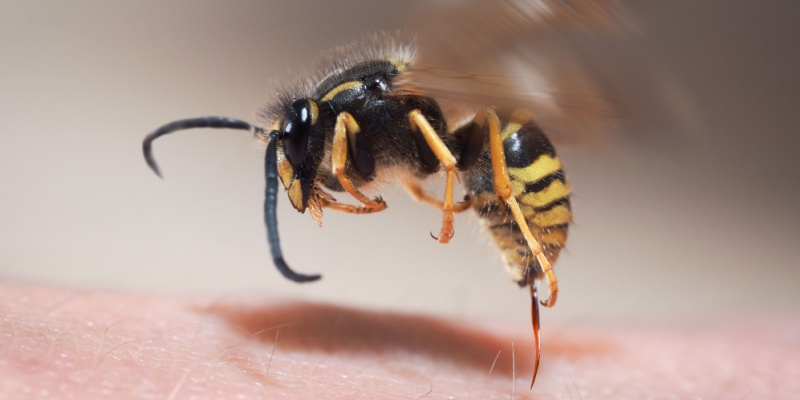Stinging insects like wasps, hornets, and bees can turn your home's outdoor spaces into areas of concern, especially during the warmer months in Indianapolis. These insects, while beneficial to the ecosystem, pose risks to people through painful stings that can trigger allergic reactions in some individuals. Below are comprehensive steps homeowners can take to safeguard their homes against these potentially dangerous pests.
Understanding Stinging Insects
The first step in protection is understanding the types of stinging insects that may pose a problem. Wasps, hornets, and bees have different behaviors and nesting preferences:
- Wasps: Are aggressive and can sting multiple times. They often build nests under eaves, behind shutters, or in bushes.
- Hornets: A type of large wasp, build large, paper-like nests in trees or on the sides of buildings.
- Bees: Generally less aggressive unless provoked, create wax hives in more secluded areas like inside wall cavities or hollow trees.
Prevention Strategies
1. Regular Inspection and Maintenance
- Conduct regular inspections of your property, especially in early spring, when many stinging insects begin to build their nests.
- Seal any cracks and crevices in your home's exterior, including gaps in siding, loose roofing tiles, and openings around windows and doors.
2. Proper Yard Maintenance
- Keep your yard clean and free of debris where insects might nest.
- Trim bushes and trees regularly, and keep the grass mowed to reduce shelter for stinging insects.
- Remove any old or unused nests during the winter months to prevent reuse.
3. Manage Attractants
- Cover food and drinks during outdoor activities. Wasps and bees are attracted to sweet foods and proteins.
- Ensure garbage cans and recycling bins are tightly sealed to prevent attracting insects looking for food.
- Avoid using strongly scented perfumes, lotions, and hairsprays outdoors, which can attract stinging insects.
4. Water Source Management
- Eliminate standing water in your yard, which can attract insects. This includes maintaining gutters and downspouts to ensure proper drainage and covering or emptying containers that collect water.
5. Use of Decoys and Traps
- Consider installing wasp decoys in areas of your yard where you want to deter nest building. These decoys exploit wasps' territorial nature, preventing them from nesting nearby.
- For areas with high insect activity, traps can be used to reduce the population. However, traps should be placed strategically, as they can sometimes attract more insects.
When to Call Professionals
While preventive measures can significantly reduce the risk of stinging insects, sometimes an infestation requires professional intervention. If you discover a nest on your property, especially in hard-to-reach areas, or if you're allergic to stings, it's safest to contact professional pest control services. Experts in stinging insect control can safely remove nests and provide further advice for preventing future problems.
Protecting your Indianapolis home from stinging insects involves a combination of diligent property maintenance, behavioral adjustments, and, when necessary, professional assistance. By taking proactive steps to manage your environment and deter these pests, you can enjoy your outdoor spaces with greater peace of mind and safety.
